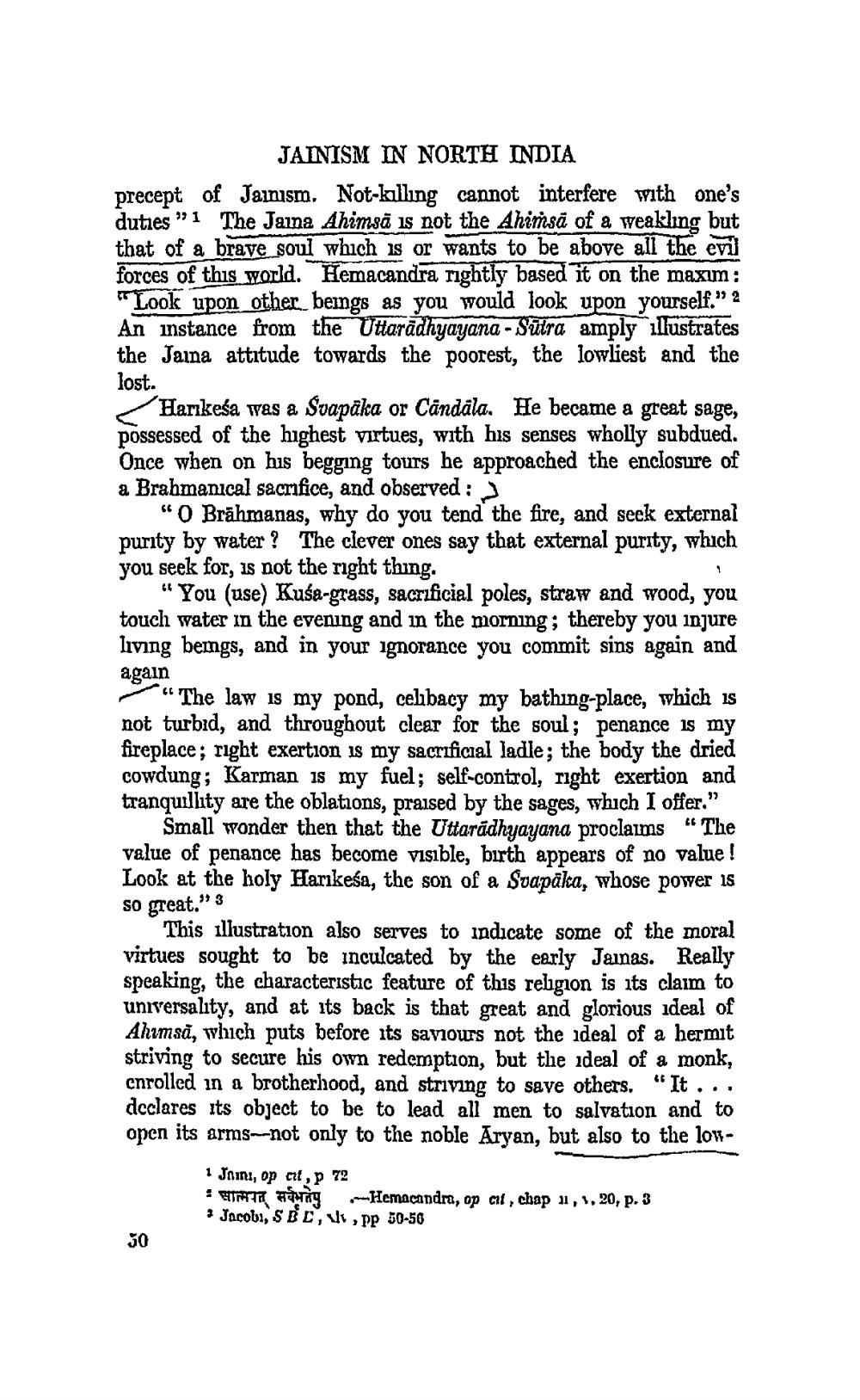________________ JAINISM IN NORTH INDIA precept of Jainism, Not-kalling cannot interfere with one's duties "1 The Jaina Ahimsa is not the Ahimsa of & weakling but that of a brave soul which is or wants to be above all the evil forces of this world. Hemacandra rightly based it on the maxim: "Look upon other beings as you would look upon yourself." 2 An instance from the Viaradhyayana - Sutra amply illustrates the Jaina attitude towards the poorest, the lowliest and the lost. Hankesa was a Svapaka or Candala. He became a great sage, possessed of the highest virtues, with his senses wholly subdued. Once when on his begging tours be approached the enclosure of a Brahmanical sacrifice, and observed :) "O Brahmanas, why do you tend the fire, and seek external punity by water? The clever ones say that external purity, which you seek for, is not the right thing. "You (use) Kusa-grass, sacrificial poles, straw and wood, you touch water in the evening and in the morning; thereby you injure living beings, and in your ignorance you commit sins again and again "The law is my pond, celibacy my bathing-place, which is not turbid, and throughout clear for the soul; penance is my fireplace; right exertion is my sacrificial ladle; the body the dried cowdung; Karman is my fuel; self-control, right exertion and tranquillity are the oblations, praised by the sages, which I offer." Small wonder then that the Uttaradhyayana proclaims "The value of penance has become visible, birth appears of no value ! Look at the holy Harikesa, the son of a Svapaka, whose power is so great." 3 This illustration also serves to indicate some of the moral virtues sought to be inculcated by the early Jainas. Really speaking, the characteristic feature of this religion is its claim to universality, and at its back is that great and glorious ideal of Ahimsa, which puts before its saviours not the ideal of a hermit striving to secure his own redemption, but the ideal of a monk, cnrolled in a brotherhood, and striving to save others. "It ... dcclares its object to be to lead all men to salvation and to open its arms--not only to the noble Aryan, but also to the low 1 Jnini, op at, p 72 . IT g Jacob!, SBC, H cmacandra, op cit, chap 11, 1.20, p. 3 PP 50-50 50




